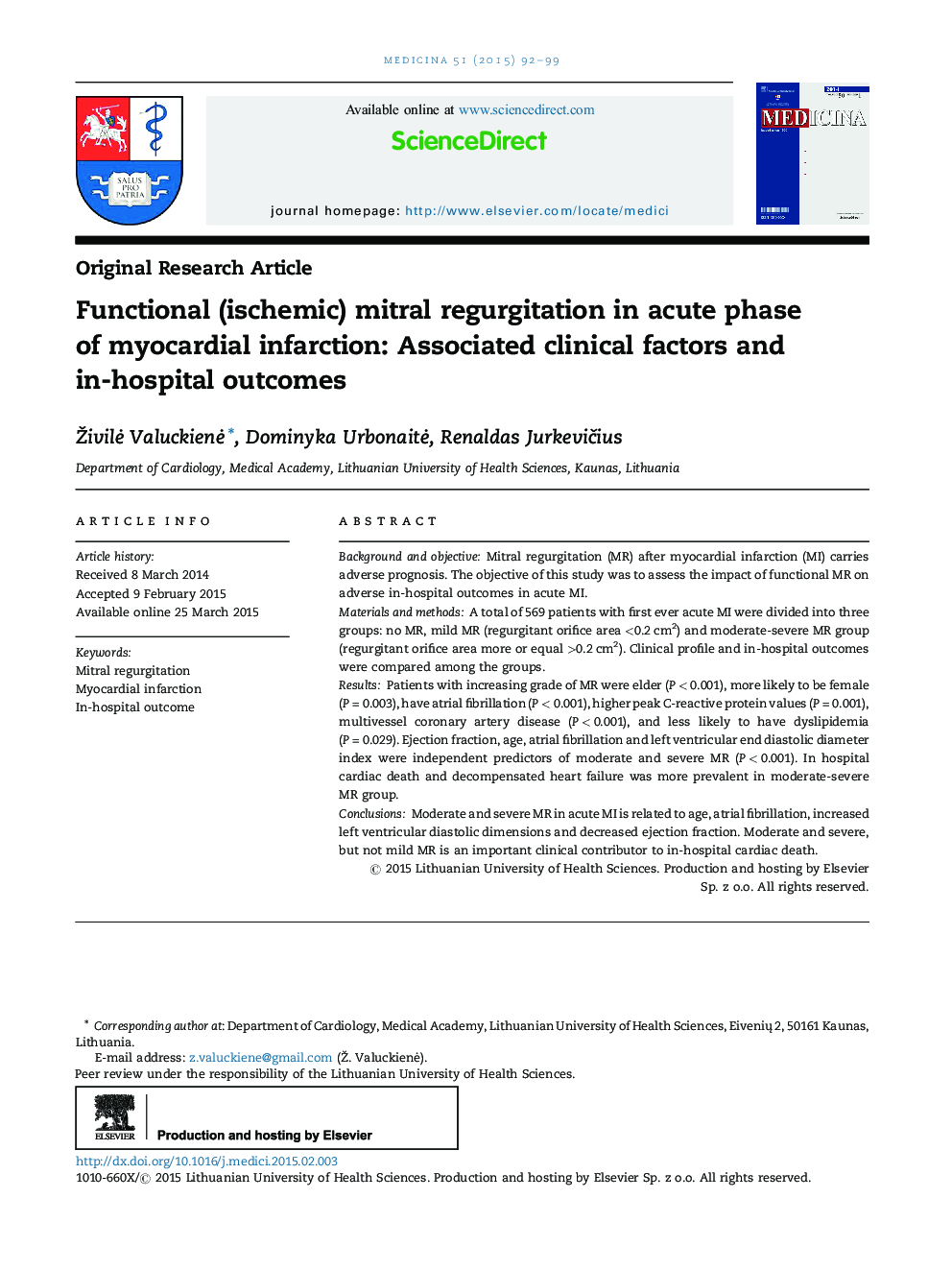| Article ID | Journal | Published Year | Pages | File Type |
|---|---|---|---|---|
| 2681829 | Medicina | 2015 | 8 Pages |
Background and objectiveMitral regurgitation (MR) after myocardial infarction (MI) carries adverse prognosis. The objective of this study was to assess the impact of functional MR on adverse in-hospital outcomes in acute MI.Materials and methodsA total of 569 patients with first ever acute MI were divided into three groups: no MR, mild MR (regurgitant orifice area <0.2 cm2) and moderate-severe MR group (regurgitant orifice area more or equal >0.2 cm2). Clinical profile and in-hospital outcomes were compared among the groups.ResultsPatients with increasing grade of MR were elder (P < 0.001), more likely to be female (P = 0.003), have atrial fibrillation (P < 0.001), higher peak C-reactive protein values (P = 0.001), multivessel coronary artery disease (P < 0.001), and less likely to have dyslipidemia (P = 0.029). Ejection fraction, age, atrial fibrillation and left ventricular end diastolic diameter index were independent predictors of moderate and severe MR (P < 0.001). In hospital cardiac death and decompensated heart failure was more prevalent in moderate-severe MR group.ConclusionsModerate and severe MR in acute MI is related to age, atrial fibrillation, increased left ventricular diastolic dimensions and decreased ejection fraction. Moderate and severe, but not mild MR is an important clinical contributor to in-hospital cardiac death.
